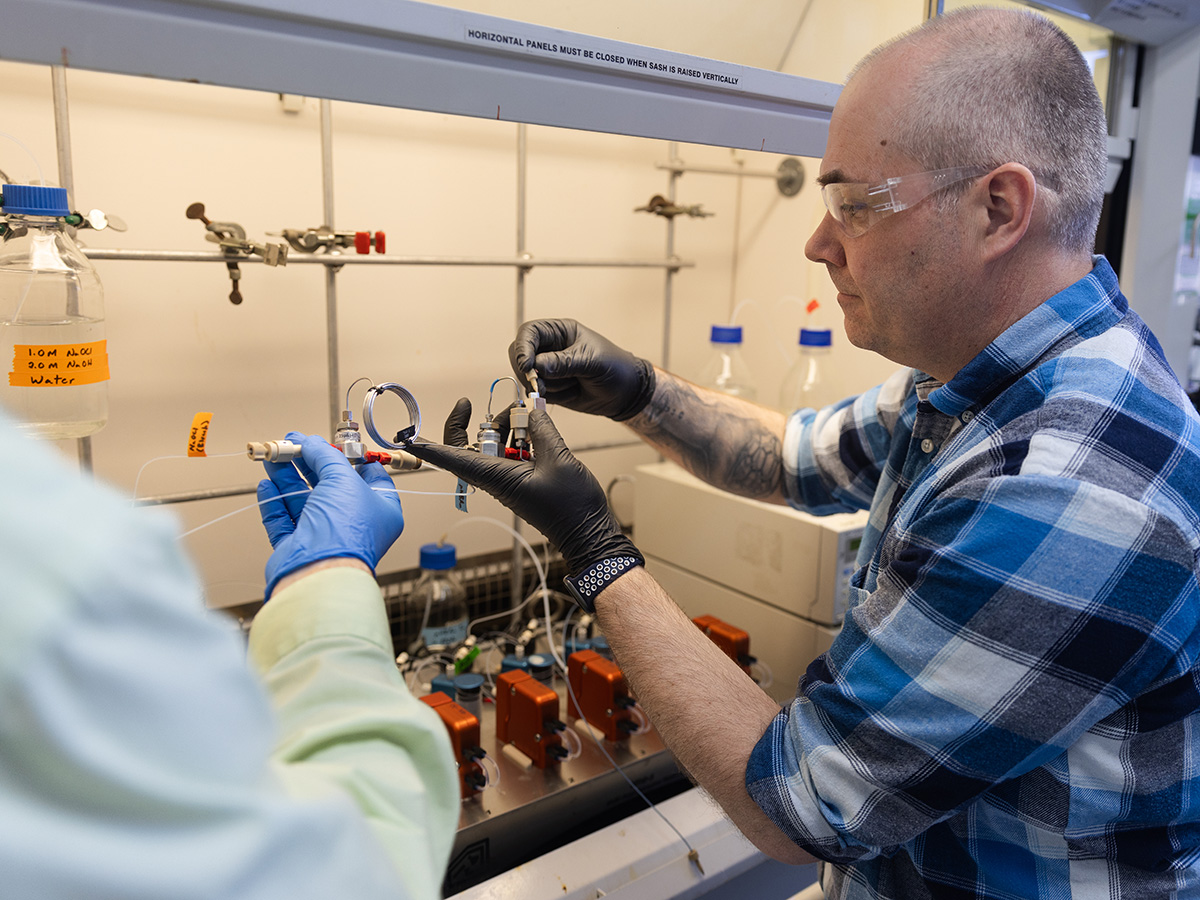A Painkiller from Plants
A UW discovery offers a greener version of a widely used medicine.

Karlen showed how acetaminophen can be made from a compound in poplar trees. Chelsea Mamott
UW scientists have developed a cost-effective and environmentally sustainable way to make a popular pain reliever and other valuable products from plants instead of petroleum.
Building on a previously patented method for producing paracetamol, the active ingredient in Tylenol, the discovery promises a greener path for one of the world’s most widely used medicines, as well as other chemicals. More important, it could provide new revenue streams to make cellulosic biofuels — derived from nonfood plant fibers — cost-competitive with fossil fuels, the primary driver of climate change.
Paracetamol, also known as acetaminophen, has a global market value of about $130 million a year. Since it was introduced in the early 1900s, the drug has traditionally been made from derivatives of coal tar or petroleum. In 2019, Steven Karlen of the UW’s Great Lakes Bioenergy Research Center and UW biochemistry professor John Ralph PhD’82 showed how it could be made instead from a compound in poplar trees using a well-known chemical reaction.
Now Karlen’s team has improved the process for making paracetamol as well as other drugs, pigments, textiles, and biodegradable plastics. The process is available for commercial licensing through the Wisconsin Alumni Research Foundation, the nonprofit organization that commercializes UW discoveries to support ongoing research.
Published in the Fall 2024 issue



Comments
No comments posted yet.